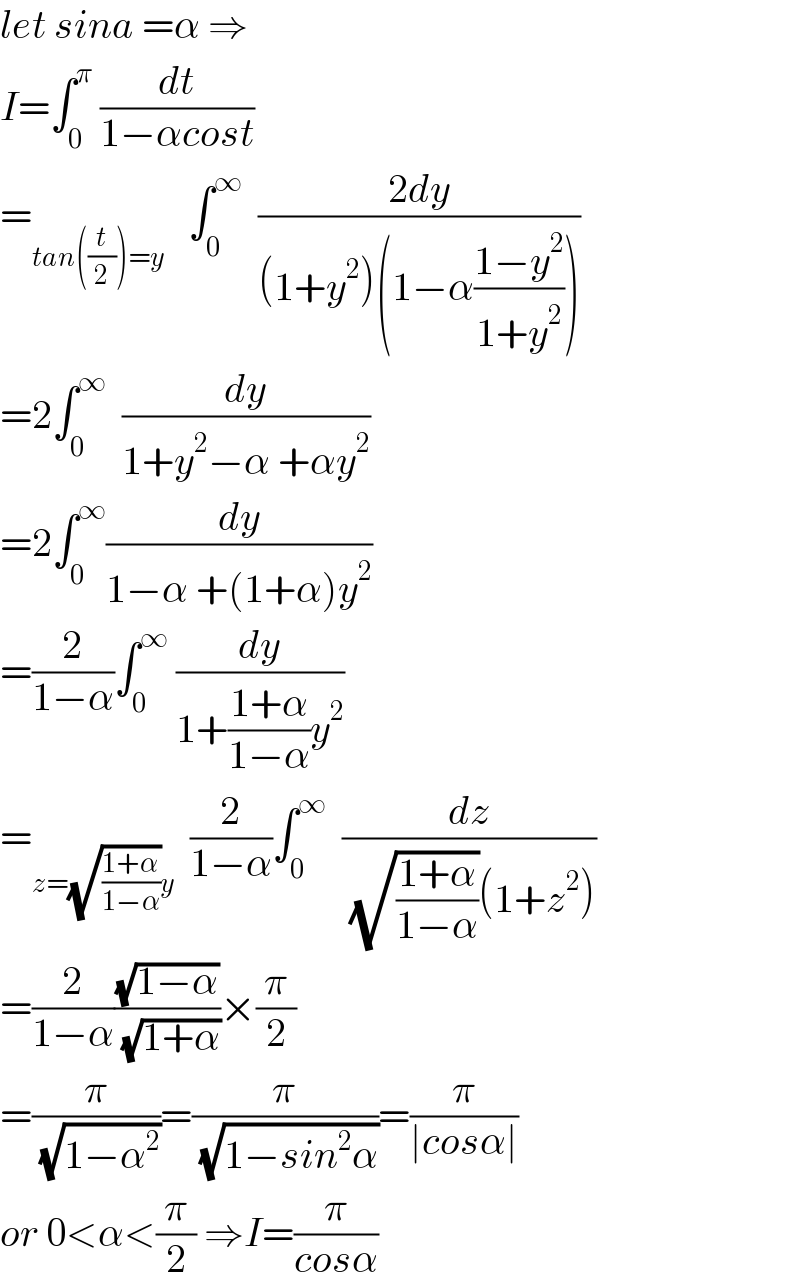
Question and Answers Forum
Question Number 165741 by metamorfose last updated on 07/Feb/22
![∫_0 ^π (dt/(1−sina.cost))=??? , a∈]0,(π/2)[](Q165741.png)
Answered by MJS_new last updated on 08/Feb/22
![a∈]0; (π/2)[ ⇒ 0<sin a <1 ⇒ let sin a =A; 0<A<1 ∫(dt/(1−Acos t))= [u=tan (t/2) ⇒ dt=((2du)/(u^2 +1))] =2∫(du/((1+A)u^2 +(1−A)))= [let B=1+A ∧ C=1−A ⇒ B, C >0] =2∫(du/(Bu^2 +C))= [u=((√C)/( (√B)))v → du=((√C)/( (√B)))dv] =(2/( (√(BC))))∫(dv/(v^2 +1))=(2/( (√(BC))))arctan v = =(2/( (√(1−A^2 ))))arctan (((√(1+A)) u)/( (√(1−A)))) = =(2/(cos a))arctan (((√(1+sin a)) tan (t/2))/( (√(1−sin a)))) +C ⇒ answer is lim_(t→π^− ) ((2/(cos a))arctan (((√(1+sin a)) tan (t/2))/( (√(1−sin a))))) =(π/(cos a))](Q165763.png)
Commented by metamorfose last updated on 09/Feb/22

Answered by Mathspace last updated on 08/Feb/22

Commented by metamorfose last updated on 09/Feb/22

Commented by Mathspace last updated on 08/Feb/22

